STA 2020: The 12th IEEE International Workshop on Software Test Automation
Call for Papers
Goal of the workshop:
Test automation aims to reduce the cost and improve the effectiveness of software testing by using various techniques and methods. Other benefits are consistency and accuracy, reduction of overall test cycle time, risk mitigation of manual testing, and increase in overall product quality. Recording test activities as test scripts and playing the test scripts or record and playback are the common methods. More advanced methodologies include data-driven, keyword-driven and hybrid methods as well as framework-based methods. Among tool development, interoperability remains a major challenge.
Workshop theme:
This year’s theme of COMPSAC is “Driving Intelligent Transformation of the Digital World”. Staying relevant in a constantly evolving digital landscape is a challenge faced by researchers, developers, and producers in virtually every industry and area of study. Once limited to software-enabled devices, the ubiquity of digitally-enabled systems makes this challenge a universal issue. Furthermore, as relevance fuels change, many influencers will offer solutions that benefit their own priorities. Fortunately, history has shown that the building blocks of digital change are forged by those conducting foundational research and development of digital systems and human interactions. Artificial Intelligence is not new, but is much more utilized in everyday computing now that data and processing resources are more economically viable, hence widely available. The opportunity to drive the use of this powerful tool in transforming the digital world is yours. Will your results help define the path ahead, or will you relegate those decisions to those with different priorities for utilizing intelligence in digital systems?
Accordingly, submissions including applications and case studies in these areas will highly be appreciated.
Scope of the workshop:
Topics of interest include, but are not limited to, the following
- Test automation for large, complex systems
- Testing in Continuous Integration / Continuous Development (CI/CD) pipeline and DevOps.
- Early defect detection, reducing development timeline
- Reliability testing, Mean Time between Failures (MTBF)
- Test modeling and test methodologies
- Exploratory Testing
- Combinatorial testing, Test input generation
- Model Based Testing, Keyword Based Testing
- Test automation in the context of different software development lifecycle methodologies
- Design of high-quality, reusable tests
- Product Line Testing
- Test-driven development and behavior driven testing
- Operation, maintenance and evolution of test tools and environments
- Application in different domains – digital world, cloud computing, healthcare
- Experiments, empirical studies, experience reports, and case studies.
- Support for testing methods, test framework, test infrastructure.
- Management of distributed test assets and test environments
- Development, operation, integration, and standardization of test tools
- Test metrics to measure test efficiency and test coverage optimization
- Test efficiency, Test effectiveness, and Lean testing approaches.
- Quantitative studies including cost vs. benefit studies.
Likely participants: Software engineers and testing researchers from academia and the industry
Submission deadline date extended to May 1, 2020
Workshop Chairs
Rajesh Subramanyan, Siemens USA
Email: subramanr19@gmail.com
Fevzi Belli, University of Paderborn, Germany
Email: belli@upb.de
Program Committee
Xiaoying Bai, Tsinghua University, China
Christof Budnik, Siemens, USA
Feza Buzluca, Istanbul Technical University, Turkey
Arilo Claudio, Federal University of Amazonas, Brazil
Atilla Elci, Eastern Mediterranean University, North Cyprus
Jerry Gao, San Jose State University, USA
Ron Kenett, KPA Ltd, Israel
Yvan Labiche, Carleton University, Canada
Juncao Li, Microsoft, USA
Aditya Mathur, Purdue University, USA
Ina Schieferdecker, Fraunhofer FOKUS, Germany
Marek Stochel, Motorola Solutions, Poland
Guilherme Travassos, Federal University of Rio de Janerio (UFRJ), Brazil
Dragos Truscan, Ãbo Akademi University, Finland
T.H Tse, The University of Hong Kong, Hong Kong
Tugkan Tuglular, Izmir University, Turkey
Mario Winter, Univ. of Applied Science, Cologne, Germany
Dave Towey, The University of Nottingham, China
Fie Xie, Portland State University, USA
Hong Zhu, Oxford Brookes University, UK
